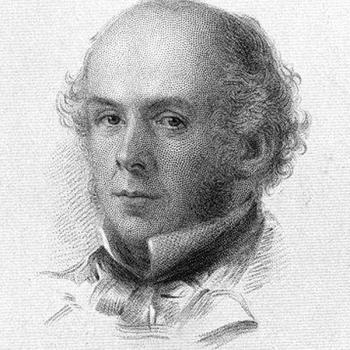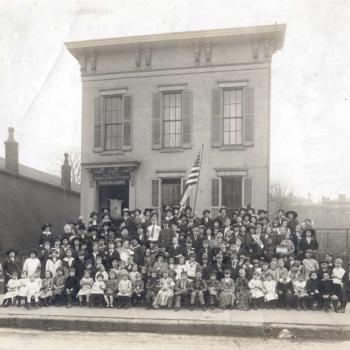I enjoyed Philip Jenkins’s recent critique of a NYT piece on waning urban spirituality, noting that the Times perceived waning spirituality out of a desire for spirituality (or at least anything approaching traditional Christianity) to wane. Spurred on by his post, I reflected on some recent coverage of religion in the Boston Globe (digested during our New England Christmas). The Christmas season is one time of year in which newspapers that might prefer to ignore Christianity feel obliged to print stories about it.
Two stories caught my attention . The first profiles Highrock Church, an evangelical outpost in Arlington, Massachusetts. It’s the sort of evangelical church secular newspapers can enjoy: progressive, tolerant, and innovative. A capsule of the church’s Christmas concert:
Which explains the violins and electric guitars, drums and keyboards, and roof-raising, 41-voice chorus that put on a Christmas spectacular at Highrock last weekend. Every penny in proceeds — about $15,000 — will go to the town. The money pays for a part-time social worker dedicated to helping Arlington’s neediest residents — a salary taxpayers would be hard-pressed to cover since state cuts to aid for cities and towns.
The story notes that in “a town long dominated by Catholic and mainline Protestant churches, and where evangelical churches are less familiar, some were wary of Highrock’s generosity at first.” Some observers feared that the church would attempt to convert people (imagine a religious movement that attempted to persuade people to voluntarily join it by doing nice things for others!). However, Highrock appears to have won over its skeptics and established a foothold for progressive evangelicalism in eastern Massachusetts.
A second article profiled Common Street Community Church’s inaugural service this Christmas eve. More progressive and less evangelical than Highrock, CSCC nevertheless arrived with a burst of enthusiasm in decidedly post-Christian Natick. 80 people attended, sang Christmas carols accompanied by a jazz band, and listened to the remarks of pastor Ian Mevorach: “The light of life is not specific to any race, religion, age, or class … It’s a universal light. It’s the light of God that is within all people.” Not exactly my preferred Christmas message, but I like Mevorach because he’s a fellow graduate of Middlebury College. (After some additional investigation, it turns out that CCSC or at least its pastor is affiliated with the American Baptist Convention).
Christianity in urban America — embattled but thriving. Anyone know of any Highrock-like churches in Northern Virginia?
At the same time, I read with interest a report in the Wall Street Journal about the fate of Dwight Moody’s Northfield, Massachusetts school:
These days the school sits empty. There are no throngs of visitors to the sleepy town. Shopkeepers say they’re struggling to stay in business, and there are no more gas stations.
Even so, the billionaire Oklahoma family that is trying to revive the town’s evangelical presence is running into opposition.
A number of years ago, the owners of Hobby Lobby purchased the struggling Northfield Mount Hermon school. They have been attempting to attract an institution to revive Dwight Moody’s evangelical purpose and vision. Local residents evidently have been having nightmares about homophobic evangelicals disturbing their secular idyll. “Resident Ted Thornton said it is a paradox that ‘we consider ourselves tolerant but we won’t tolerate intolerance.'” Thus, certain evangelicals (such as those at Highrock) find a way to make themselves welcome in Massachusetts, but most remain firmly beyond the pale of secular tolerance.
Reading these articles caused me to reflect on my own past phases of intolerance. My background includes two years spent as an evangelical student at a mainline (PCUSA) seminary. It was easy for me, at times, to approach liberal, mainline expressions of Presbyterianism with a certain amount of intolerance or disdain. I believed that the denomination was shrinking because of its theological (and political) moves leftward. That may indeed be part of the story; however, the denomination’s decline also has had much to do with its demographic position within the United States. [See this interview by Ed Blum with Carol Howard Merritt]. Regardless, I tended to approach churches like Highrock and CCSC as meek Christian compromises with secular, progressive America.
Now, I see my past attitude as sinful. Highrock and CCSC are courageous and thoughtful efforts to reach new generations of young Americans with the love of Jesus Christ. Even conservative evangelicals, in my opinion, should be grateful for whatever success progressive and mainline Christians achieve. Mainline and evangelical Protestants should wish each other well rather than ill.
At the same time, mainline, secular, and other Americans should welcome evangelical institutions that might wish to come to their communities (like Northfield). If progressive America cannot tolerate evangelical Christians, then its calls for toleration and diversity are merely sound and fury masking new forms of uniformity and intolerance.















